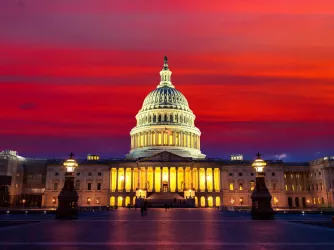Table of Contents
Tufts University Makes Progress on Free Speech, but Wrongful Harassment Finding Remains
BOSTON, August 29, 2007—Tufts University President Lawrence Bacow took a significant, positive step this week by pledging that Tufts students will now enjoy the fullest protections guaranteed by the First Amendment. Unfortunately, the administration failed to overturn a wrongful harassment finding against the conservative student newspaper, The Primary Source, for publishing clearly protected political satire. The Foundation for Individual Rights in Education (FIRE) spearheaded the defense of the student paper after Tufts punished it for printing two articles that offended African-American and Muslim students on campus, and is calling upon Tufts to fully exonerate the paper.
“While President Bacow’s statement supporting the First Amendment at Tufts is very encouraging, a student publication was still found guilty of harassment for publishing satire and verifiable facts. That is not harassment by any legitimate definition of the term,” FIRE President Greg Lukianoff said. “Not only does such a finding trivialize actual harassment on Tufts’ campus, it represents a stark contradiction between the words and the actions of the school’s leadership.”
Students’ rights at Tufts were in serious jeopardy throughout the last year, beginning in December when The Primary Source (TPS) printed a Christmas carol parody, “O Come All Ye Black Folk,” a harsh criticism of race-based admissions policies. Realizing that the carol offended large portions of the Tufts community, TPS published an apology on December 6, 2006. Four months later, however, a student filed charges alleging that the carol constituted “harassment” and created a “hostile environment.” Other students filed similar charges in response to TPS’ April 11, 2007, piece entitled “Islam—Arabic Translation: Submission,” a satirical advertisement that ridiculed Tufts’ “Islamic Awareness Week” by highlighting militant Islamic terrorism.
Despite the university’s explicit promises in its policies to protect controversial and offensive expression, the Tufts Committee on Student Life decided in May to punish TPS, finding that the two articles constituted harassment. Sanctions against TPS included a ban on printing anonymous editorials—a prohibition that applied to no other student publication—and an ominous hint that the student government should cut funding to the conservative paper. FIRE fought the administration’s decision tirelessly and even placed Tufts on FIRE’s Red Alert list, which is reserved for institutions that have demonstrated severe and ongoing disregard for fundamental rights on campus.
Tufts decided on Monday to overturn the ban on anonymous editorials, but left in place the finding that TPS committed harassment by satirically addressing matters of public concern. The decision also failed to warn the student government against cutting funding for TPS. The paper will distribute its first issue of the year today.
“Recent developments at Tufts represent progress. As long as the harassment finding remains, however, the fight is not over, and the school will remain on FIRE’s Red Alert list,” Lukianoff said. “We hope the public will join us in urging President Bacow to take the final, logical step in this case and overturn that wrongful decision.”
FIRE is a nonprofit educational foundation that unites civil rights and civil liberties leaders, scholars, journalists, and public intellectuals from across the political and ideological spectrum on behalf of individual rights, due process, freedom of expression, academic freedom, and rights of conscience at our nation’s colleges and universities. FIRE’s efforts to preserve liberty at Tufts University can be viewed at www.thefire.org/schools/tufts-university/.
CONTACT:
Greg Lukianoff, President, FIRE: 215-717-3473; greg_lukianoff@thefire.org
Lawrence S. Bacow, President, Tufts University: 617-627-3300; bacow@tufts.edu
Recent Articles
FIRE’s award-winning Newsdesk covers the free speech news you need to stay informed.

One day after FIRE lawsuit, Congress passes changes to filming permits in national parks

VICTORY: FIRE lawsuit leads California to halt law penalizing reporters, advocates, and victims who discuss publicly known information about sealed arrest records

O holy fight: New Hampshire Satanic Temple statue threatened by more than vandals
